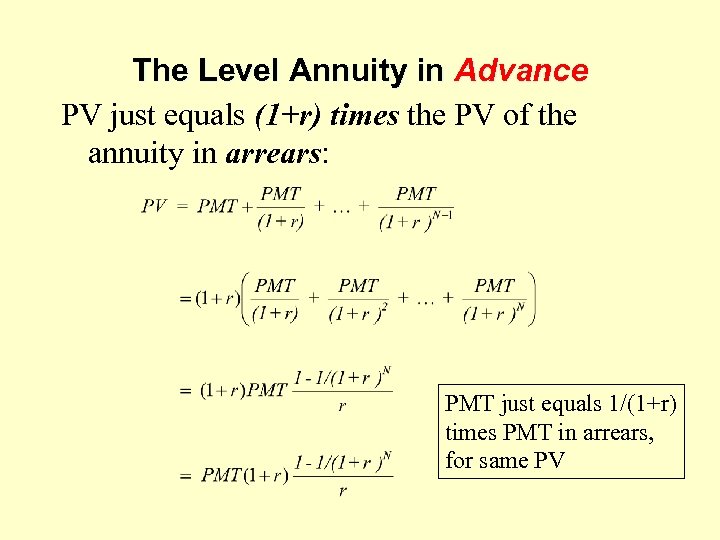- Your cart is empty
- Continue Shopping
Blockchain in accounting research: current trends and emerging topics

Nor can individuals collude to override controls or illicitly change or delete official accounting records (Wang and Kogan, 2018). Companies that incorporate blockchain into their accounting systems therefore may reduce their risk of fraud (Dai et al., 2017). Using blockchain might also mean more transactions can be automated, less data are lost, transactions can be tracked better and users’ needs throughout the process can be detected more easily (Fullana and Ruiz, 2021; Bonsón and Bednárová, 2019). However, the primary and most valuable difference between traditional databases and blockchain is its novel solution to control whereby transactions cannot be deleted or changed (Coyne and McMickle, 2017; Dai et al., 2017).
Additional guidance and support

A smart contract can be encoded with an obligation token to execute a payment once certain conditions are met (e.g., the payment due date has been reached). In light of these insights, it becomes evident that fostering a robust culture of organizational support is paramount for realizing the full potential of blockchain technology in accounting education. Educational institutions can foster https://www.accountingcoaching.online/ an environment where faculty members can embrace innovative teaching and learning by prioritizing initiatives that promote training, assistance, and resource allocation. Thus, investing in organizational support emerges as a strategic imperative for educational institutions seeking to harness the transformative power of blockchain technology in the realm of accounting education.
- More papers applying machine learning techniques will help to gather information from reports, and web crawlers will be able to discover new aspects of how blockchain technologies have been implemented in practice.
- In this sense, code analysis allows us to discover new variables and better highlight possible future research journeys.
- Studies do indicate that remote work makes employees happier and less stressed.
- Data encryption, a vital blockchain element, helps protect individuals’ privacy (Brown-Liburd et al., 2019).
- Researchers should test new business models in a market and evaluate transaction efficiency and the degree of novelty in the transaction’s content, structure, steering, resource use, network effects and value creation for stakeholders.
- The public set represents virtually irrefutable evidence of the underlying transactions.
Resources for Your Growing Business
Thus, few authors have demonstrated the role of blockchain in sharing both financial and environmental data. Therefore, this research confirms the broadening of research interests in this field to the transformation of the accounting and auditing professions and environmental issues. Thus, the issue of accountability based on blockchain represents a strong push for future research.
1 Blockchain for accounting and auditing: from exploration to full exploitation
This subsection aims to investigate whether the authors have referred to the distinction between accounting theories according to Malmi and Granlund (2009)’s and Manzon and Plesko (2001)’s subdivisions. Table 1 shows that 89% of the sources do not consider the theoretical aspects of accounting. Management accounting theory is analyzed in 7% of the cases and the theoretical aspects of auditing in 2%.
Related articles

Identifying emerging topics in the field is an important element in generating insights for future research (Small et al., 2014) and leading research innovations (Cozzens et al., 2010). Understanding what we have learnt and how blockchain technology is impacting accounting is of benefit to everyone connected to this area. The blockchain ecosystem is made up of cryptographic hashes that represent information input (Cai, 2018; McAliney and Ang, 2019). manufacturing overhead Data encryption, a vital blockchain element, helps protect individuals’ privacy (Brown-Liburd et al., 2019). Therefore, the cryptographic hash protects data integrity (Joseph, 2019), the validity and accuracy of information and provides the basis for the accounting system based on blockchain technology (Smith, 2018). Auditors can map the history of information by providing greater authoritativeness to their analyses (Bonsón and Bednárová, 2019).
The parts of accounting concerned with transactional assurance and carrying out transfer of property rights will be transformed by blockchain and smart contract approaches. The move to a financial system with a significant blockchain element offers many opportunities for the accountancy profession. Accountants are seen as experts in record keeping, application of complex rules, business logic and standards setting. They have the opportunity to guide and influence how blockchain is embedded and used in the future, and to develop blockchain-led solutions and services. These judgemental elements often require context that is not available to the general public, but instead require knowledge of the business, and with blockchain in place, the auditor will have more time to focus on these questions.
In 2018, the amount of electricity used to mine cryptocurrency can heat a home. On an aggregate basis, mining would represent the seventh largest country by electricity consumption. It’ll eliminate mundane jobs like reconciliation transaction data and having to put manual entries into your ledger. It protects the sensitive data of the transaction and acts as a receipt that verifies the transaction occurred at a certain time. The biggest positives of the new technology included time saved (30%), better productivity (15%), cloud access (10%), data accuracy (7.5%), and fast data retrieval (7.5%). You should use accounting AI tools to reduce the amount of time you spend on simple tasks.
The official interpretation was issued by the IFRS [Interpretations Committee, (2019)], which stated that the only way to comply with the IFRS principles was to account for cryptocurrencies as intangible assets (IAS38) or inventory (IAS2). However, as the IFRS Interpretations Committee (2019) left an opening, in the future, accounting recommendations could change if some countries adopt certain cryptocurrencies as legally tender or entities adopt them as the basis for their transactions. Figure 6 shows a cooccurrence heatmap of the main authors’ keywords (more than five occurrences) in this cluster. Table 3 provides some quantitative data (total citation and CPY) regarding the studies with the highest impact on this topic. Researchers have worked to build a theory to explain how blockchain will change accounting. Some research products have used general frameworks such as the technology–organization–environment framework (Dai and Vasarhelyi, 2017) and the unified theory of acceptance and use of technology (Ferri et al., 2020).
Second, in terms of authors, O’Leary DE, Vasarhelyi MA and Cai CW are the leading authors. They promptly launch this research stream with in-depth analysis focusing on applications such as triple-entry systems and automated auditing networks. Finally, considering countries’ interest and collaboration, the USA has the highest level of collaboration https://www.personal-accounting.org/quickbooks-self-employed-version/ globally, followed by Australia. Additionally, 13% of the authors focus on public blockchain, among which Shahriar Rahman et al. (2020)’s contribution is interesting. For authors, a public mechanism based on the global data cloud may exist if there are mechanisms for reporting misconduct by users that undermine other users’ trust.

As a tool for accuracy and transparency, blockchain places pressure on accountants to justify their accounting choices. It also creates a closer link between accounting and a company’s responsibilities to its stakeholders and makes it more challenging for financially-distressed companies to hide their situation (Smith, 2017). The sources studied indicate theoretical implications for 47% of the cases, mainly in future research. This is in line with the poor theoretical analysis of blockchain in this research area.
This framework allows for a more accurate literature analysis by investigating undiscovered approaches that have yet to be scientifically validated. Furthermore, as Paul and Criado (2020) indicate, reviews should aim to launch new ideas, theories, measures, methods and RQs. In this sense, code analysis allows us to discover new variables and better highlight possible future research journeys. First, implementing bibliometric analysis makes it possible to derive useful information such as time period, documents’ information, sources, authors, keywords, citations and countries. Therefore, based on the results obtained and from the theory, we created the first category of nodes similar to Guthrie et al. (2012), Massaro et al. (2015) and Secinaro et al. (2020).
Nor are all market participants eager to treat cryptoassets as a security due to their volatility, making it difficult to ascertain an appropriate value to record for income statement and balance sheet purposes (Smith et al., 2019; Tan and Low, 2019). Finally, it is worth noting that financial accounting is characterised by accounting prudence and conservatism, which can lead to differences between a company’s market and book value (Dumay and Guthrie, 2019). As cryptoassets are often characterised as a potential future economic benefit, their acquisition may lead to even greater discrepancies between the market and book values of companies, especially in markets with optimistic valuations of intangible assets. The convergence of blockchain and artificial intelligence (AI) may be a very promising opportunity for groundbreaking advancements in AI data management, computation, and model distribution related to the critical economic and societal issues. As people become increasingly better at using AI and adoption increases, the need for secure, transparent, and efficient systems to manage data, compute resources, and AI models has never been more pressing.

